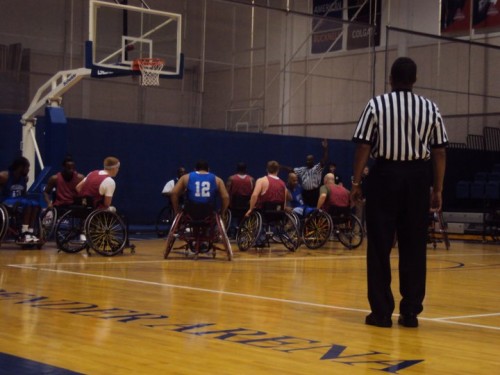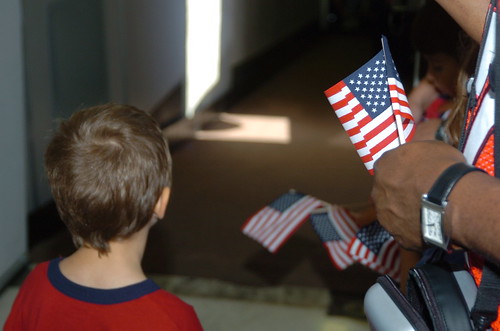
Photo by Rachel Levitin
Billy Demby travels to Walter Reed Medical Center to coach their wheelchair basketball team two times a week for two hours at a time. Demby, a Vietnam veteran and bilateral amputee himself, coached the All-Marine wheelchair basketball team to win gold in the 2010 Inaugural Warrior Games before starting with Walter Reed a couple years back.
The 2011 Walter Reed wheelchair basketball team is one of many participating in the Wounded Worrier Project. The Wounded Warrior Project is a non-profit organization founded in 2002 dedicated to honoring and empowering wounded warriors. Walter Reed’s team is also one of three teams who have participated in the U.S. Armed Forces Wheelchair Basketball Game two times since the game’s inaugural event last year.
This year’s U.S. Armed Forces Wheelchair Basketball Game was played Thursday, March 31 at American University’s Bender Arena and Demby’s Walter Reed players took the court against the National Rehabilitation Hospital Ambassadors.


